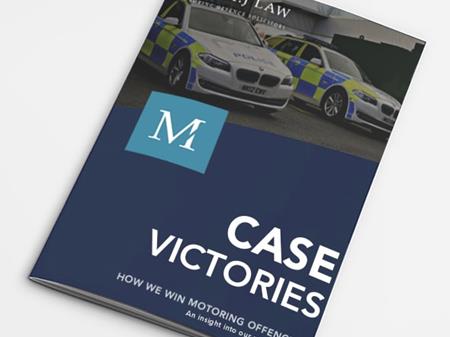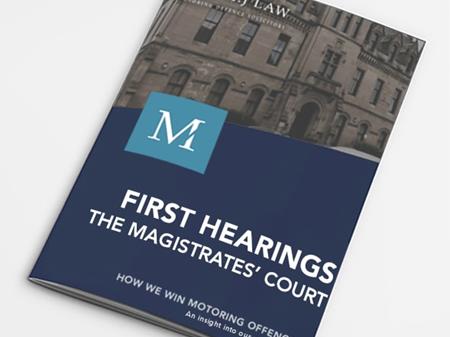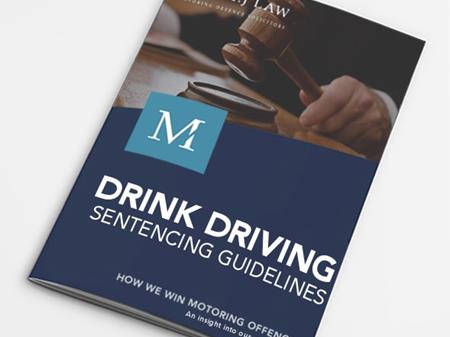
Exceptional Hardship in Drink Driving Cases
You may wonder whether 'exceptional hardship' applies in drink driving cases. In other words, can you tell the court of all the reasons why your licence is important and hope they don't ban you? I'm afraid not.
If you're convicted of drink driving the court must disqualify you. Please don't make the mistake of believing it is discretionary. The Magistrates' Court Sentencing Guidelines and Schedule 2 of the Road Traffic Offenders Act 1988 set a minimum 12 month driving ban for a DUI offence. Remember that the higher the alcohol level, the longer the driving disqualification. If you have a previous drink, drug or fail to provide conviction in the last 10 years, the minimum disqualification is 3 years. See the Sentencing Guidelines below.
If you plead guilty the magistrates must impose a minimum 12 month driving disqualification. However many motorists receive much longer driving bans. A solicitor may be able to reduce the penalty for you.
You can check your disqualification length using our drink driving penalty calculator.
Have you been convicted of drink driving within the last 10 years?
What type of sample did you provide?
What was the level reading for ?
How will a drink driving conviction affect you?
A drink driving ban can have a devastating impact on you. It's thought that over 63% of all people convicted of drink driving go on to suffer mental health issues as a direct result of the driving ban. A drink driving ban can affect the following;
- Employment (particularly where you use your vehicle for work)
- Criminal record. A drink driving conviction is a criminal offence. This means a criminal record for life.
- High risk offender. Depending upon the alcohol level, you might be considered a High Risk Offender.
- Insurance (insurance premiums can be up to 4 x higher following a ban)
- Family life. Many people report significant stress having to rely on family members to transport them
- Cost. Trains, buses and taxis aren't always cheap.
- Travel. Many other countries take drink driving convictions seriously. It is not unusual for certain countries to refuse travel and/or visas.
M.A.J Law offer free initial advice to anyone suspected of drink driving. We can explain your options in detail from the outset.
Exceptional Hardship for Drink Driving
Where a motorist accrues 12 or more penalty points within a three year period they will face a 6 month driving disqualification under the 'totting-up' provisions (s.35 Road Traffic Offenders Act (RTOA) 1988.), unless the court finds exceptional hardship. You cannot receive penalty points for drink driving (the only exception is where a special reason is raised). In totting up cases, the court can consider;
(a) any circumstances that are alleged to make the offence (or any of the offences whose penalty points are to be taken into account) not serious,
(b) hardship, other than exceptional hardship, or
(c) any circumstances which, within the three years immediately preceding the conviction, have been taken into account to reduce or avoid a totting up disqualification.
Unfortunately, exceptional hardship arguments cannot be used in drink driving cases. The only way of avoiding a driving disqualification despite being convicted is by using a special reason. A 'special reason' has nothing to do with your personal circumstances or the reason you need your licence; it must relate to the facts of the case. The length of your driving ban depends upon your level of alcohol. So, in cases involving higher alcohol levels, the ban is longer. The minimum driving disqualification is 12 months (for breath readings around 40 micrograms). The court can also impose a fine, community service or custodial sentence. Take a look at the sentencing guidelines below.
Drink Driving Sentencing Guidelines
The magistrates will use guidelines when passing sentence in a drink driving case. The purpose of these guidelines is to ensure consistency when sentencing in courts across the country. What the police don't tell you, is that 'credit' for an early guilty plea doesn't apply to the ban. This means that you will not receive a shorter driving ban by pleading guilty early on. The only reduction is on the 'punitive' part of the sentence (which, in most cases, relates to the fine). The fine is means tested (meaning it's based upon your income), but is not normally more than £500.
| Breath | Blood | Urine | Disqualification |
| 36 - 59 | 81 - 137 | 108 - 183 | 12 - 16 month |
| 60 - 89 | 138 - 206 | 184 - 274 | 17 - 22 month |
| 90 - 119 | 207 - 275 | 275 - 366 | 23 - 28 month |
| 120 - 150 > | 276 - 345 | 367 - 459 | 29 - 36 month |
If you have a previous drink or drug driving or failing to provide conviction within the past 10 years the minimum disqualification is 3 years. The Drink Driving Rehabilitation Course will reduce the length of ban by 25%.
How to get penalty points for drink driving
We often hear stories of 'friends of friends' receiving penalty points for drink driving because they take their kids to school. No one can receive penalty points for drink driving. The only exception is where the court finds special reasons but, as we have already discussed, special reasons have nothing to do with your personal circumstances.
If you are convicted of being drunk in charge the court could impose a 6 - 12 month disqualification or penalty points. One option open to a drink driver facing a mandatory driving disqualification is a 'basis of plea'. A basis of plea (known in the States as a plea bargain) is the process whereby the offender (in this case the motorist) agrees to plead guilty to a lesser charge (in this case, drunk in charge). The benefit to the Crown Prosecution Service (and the reason they often accept the basis) is that it brings the case to a close much sooner, thereby saving on time and resources. It also secures a conviction for the CPS without the need for a trial. For the motorist, they hopefully receive 10 penalty points rather than an immediate driving ban. Everyone's happy.
Another common basis that we rely on in drink driving cases is to plead guilty to a lower breath reading. Let's assume you're prosecuted on a breath reading of 95 micrograms. You're facing a two year driving ban and community service. Because your breath reading is over 87.5ug you're also going to be labelled a 'High Risk Offender'. One option is to offer a guilty plea to a lower breath reading (below 87.5). By law, the CPS should accept the basis providing there is no material difference in sentencing (Goldsmith v DPP [2009] EWHC 3010). This does begin to get a little confusing so we would recommend speaking to us directly. We will not charge you for our initial advice.
Please remember that a basis of plea can always be explored after checking the evidence. This means that you can first plead not guilty and force the CPS to provide the evidence. If the evidence is weak or inconclusive, you would probably win the case. If all the evidence checks out, we can contact the CPS and offer a basis of plea.
If you would like to speak to a specialist solicitor about a basis of plea, please get in touch. We offer free initial advice without the need for an appointment.
Can I pay a higher fine to avoid a ban?
No. The fine is means tested and depends upon your income. It is usually around 100-150% of your net-weekly income (take home pay). If you plead guilty at the first opportunity (i.e. the first hearing) you would receive maximum credit on the fine. Maximum credit is one-third. Credit does not apply to the length of the disqualification.
Because credit does not apply to the driving ban, you cannot receive a longer driving ban if you're convicted following a not-guilty plea. With this in mind, you might decide to plead not-guilty and test the evidence. You would also keep your driving licence during this time (usually three to six months) meaning you're not banned on the first court date. If all the evidence checks out, you can plead guilty. The ban remains the same.
To read more above challenging a drink driving case, click here.
I'm a carer for a family member. Will the court let me keep my licence?
No. There are no provisions allowing a convicted drink driver to keep hold of their licence as a carer - despite what you might have read online! Drink driving has far reaching consequences and will no doubt affect the people close to you. The court cannot take this into account when sentencing.
By contrast, in speeding cases, the impact on others is a critical component to an effective exceptional hardship argument.
If you own and drive a mobility vehicle it is likely this will be confiscated by the Local Authority. You can read about mobility vehicle requirements here: Motability Vehicle Scheme.
Will I go to prison for drink driving?
Going to prison for drink driving is unlikely. Only in the most serious circumstances will a person receive a custodial sentence for drink driving. The odds are greater if a person has a relevant previous conviction or if there were serious aggravating factors.
We are able to tell you within minutes whether you're facing a custodial sentence. If you are, one way to avoid this is a basis of plea (discussed above).
Thinking of pleading guilty?
Our Case Studies take a look a real cases involving real people. You may also be interested in reading about court hearings in the Magistrates' Court and Sentencing Guidelines. You can also view our case studies page for more information.

A Summary of Recent Cases – Marcus A Johnstone
How to win the 'unwinnable' cases...

Drink Driving – Your First Court Hearing
This booklet discusses a drink driving first court hearing - Is a solicitor necessary?

Will you go to prison?
This booklet looks at the Magistrates' Court Sentencing Guidelines for drink driving
Next Steps: Please get in touch to discuss your case with a member of our team. You can use the contact form below or call 01514228020 for free initial advice. You can also use our drink driving ban calculator or check out our video series.



